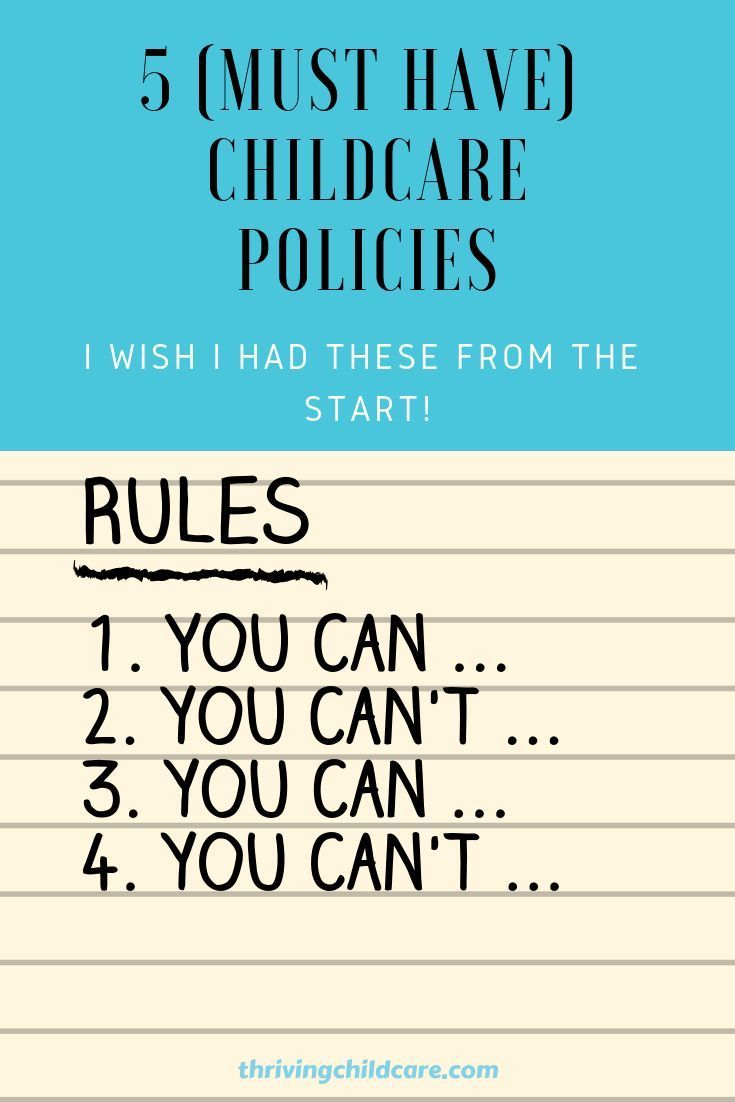Is Daycare Too Soon? A Parent's Guide To Navigating Early Childcare Decisions

Table of Contents
Developmental Readiness for Daycare
Before you even start looking at daycare centers or in-home care providers, it’s crucial to assess your child's developmental readiness. This involves looking at both their social-emotional and cognitive development.
Social and Emotional Milestones
Social-emotional development is key to a successful daycare experience. Children who are ready for daycare generally demonstrate:
- Separation anxiety management: They can handle brief separations from parents without significant distress. While some separation anxiety is normal, extreme distress can signal a need for more time at home.
- Following simple instructions: They can understand and follow basic directions from caregivers, like “put your toys away” or “wash your hands.”
- Beginning to share and interact with peers: They show interest in playing alongside other children and may even engage in simple sharing behaviors.
- Self-soothing skills: They possess some strategies to calm themselves down when upset, such as using a comfort object or finding a quiet space.
If your child struggles with these milestones, it might be beneficial to delay daycare enrollment. A child who isn't socially and emotionally ready might experience increased stress and anxiety, potentially hindering their overall development and enjoyment of the daycare experience.
Cognitive Development and Learning
Cognitive development also plays a significant role in daycare readiness. Consider whether your child exhibits these skills:
- Problem-solving abilities: Can your child solve simple puzzles or work through minor challenges?
- Language development: Can your child communicate their needs and understand basic instructions?
- Curiosity and engagement: Does your child show an eagerness to learn and explore new things?
While daycare can stimulate cognitive development, it's important to ensure the environment is age-appropriate. A stimulating learning environment that matches your child's current abilities will help foster their growth and development.
The Impact of Parental Leave and Family Dynamics
The decision of when to begin daycare is intertwined with parental leave policies and the availability of family support.
The Role of Parental Leave
Extended parental leave offers significant benefits:
- Stronger parent-child bond: More time for bonding helps build a secure attachment, making transitions to daycare smoother.
- Improved child development: Consistent care in the early months supports optimal brain development and emotional well-being.
However, rushing back to work before feeling ready can negatively impact both parents and children.
Family Support Networks
Family support can significantly influence daycare decisions:
- Grandparent assistance: Grandparents can provide childcare, allowing for a gradual transition into daycare.
- Flexible work arrangements: Part-time work or flexible hours can minimize the need for full-time daycare immediately.
- Sibling care: Older siblings might provide some childcare if appropriately supervised.
Assess your available support systems. Robust family support can allow you to delay daycare or transition more gradually, reducing stress for both you and your child.
Choosing the Right Daycare Setting
Navigating the different childcare options is crucial in determining if daycare is too soon and finding the right fit.
Types of Daycare
Several options exist, each with its own advantages and disadvantages:
- In-home daycare: Often more intimate and personalized, but with limited resources and potential for less structured activities.
- Daycare centers: Provide structured activities, social interaction with peers, and often more extensive resources.
- Preschools: Focus on early childhood education, often incorporating a more formal curriculum.
Consider your budget, child's temperament, and desired learning environment when making your selection. Teacher-to-child ratios are a key factor influencing the quality of care and attention each child receives.
Finding a Quality Daycare
Choosing a high-quality daycare provider is paramount. Key criteria include:
- Accreditation: Look for nationally recognized accreditation, indicating adherence to high standards of care.
- Safety measures: Assess the facility's safety protocols, including emergency procedures and security measures.
- Curriculum: Review the daycare's curriculum to ensure it aligns with your child's developmental stage and learning goals.
- Teacher qualifications: Verify teacher credentials and experience, seeking out caregivers with relevant training and a passion for early childhood development.
- Parent reviews: Read online reviews and talk to other parents to gather insights about the daycare's overall quality and reputation.
Signs That Daycare Might Not Be the Right Choice (Yet)
Some signs suggest delaying daycare:
Persistent Separation Anxiety
Extreme separation anxiety can indicate your child isn't ready. This includes:
- Excessive crying and distress: Prolonged and inconsolable crying during drop-off.
- Physical symptoms: Vomiting, diarrhea, or other physical manifestations of anxiety.
- Regression: Returning to earlier behaviors like thumb-sucking or bedwetting.
Addressing separation anxiety is crucial. If separation anxiety is persistent and severe, consider delaying daycare or exploring alternative options like a gradual transition or part-time care.
Frequent Illnesses
Daycare environments can increase the risk of illness in young children.
- Frequent colds and infections: Recurring illnesses can signal your child's immune system might not be robust enough for daycare.
- Weakened immune system: If your child is particularly susceptible to illnesses, it might be advisable to wait until their immune system strengthens.
Strengthening your child’s immune system and employing strategies to mitigate illness in daycare (like frequent handwashing) can help, but if illnesses are frequent and severe, delaying daycare may be the best choice.
Conclusion
The decision of whether daycare is too soon is highly individual and depends on a variety of factors, including your child's development, family circumstances, and the availability of quality childcare. By carefully considering developmental milestones, family support, and daycare options, you can make an informed decision that best suits your child's needs. Remember to prioritize finding a nurturing and stimulating environment that fosters your child's growth and well-being. Don't hesitate to seek additional resources and consult with professionals to further guide your decision-making process regarding early childcare. Making the right choice regarding early childcare is crucial, so take your time and carefully consider all aspects. Finding the right time for your child's daycare journey is key to a positive experience for everyone involved.

Featured Posts
-
 Markw Fyraty Msyrth Me Alerby Alqtry Bed Rhylh En Alahly Almsry
May 09, 2025
Markw Fyraty Msyrth Me Alerby Alqtry Bed Rhylh En Alahly Almsry
May 09, 2025 -
 Prisao De Mulher Que Alega Ser Madeleine Mc Cann O Que Sabemos Ate Agora
May 09, 2025
Prisao De Mulher Que Alega Ser Madeleine Mc Cann O Que Sabemos Ate Agora
May 09, 2025 -
 The Los Angeles Wildfires A Reflection Of Societal Trends In Disaster Gambling
May 09, 2025
The Los Angeles Wildfires A Reflection Of Societal Trends In Disaster Gambling
May 09, 2025 -
 14 Edmonton Area School Projects Fast Tracked Ministers Announcement
May 09, 2025
14 Edmonton Area School Projects Fast Tracked Ministers Announcement
May 09, 2025 -
 How Trumps Billionaire Circle Fared After Liberation Days Tariff Policies
May 09, 2025
How Trumps Billionaire Circle Fared After Liberation Days Tariff Policies
May 09, 2025
